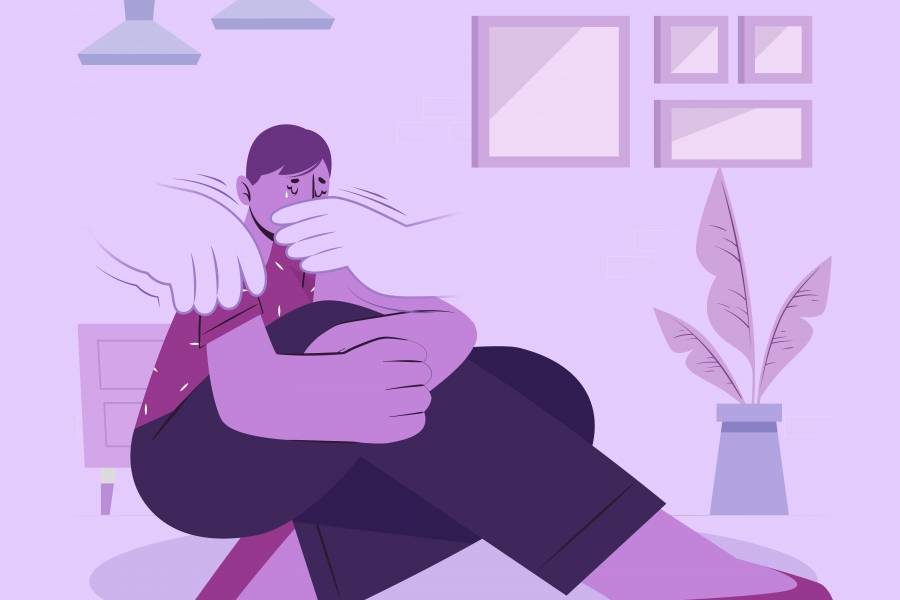As the COVID-19 pandemic swept across the country last year, communities hunkered down at home as stay-at-home orders and travel restrictions were put in place to prevent the spread of the virus. But those very measures meant to protect public health created conditions for intimate partner violence to flourish, sparking what the United Nations has termed a "shadow pandemic."
Pre-COVID-19, the U.S. Centers for Disease Control and Prevention estimates that one in four women experiences physical, emotional, sexual, or psychological violence or harm by an intimate partner. But job losses and layoffs, closed schools and childcare facilities, and increasing financial hardship have amplified stressors within the household. At the same time, women have been isolated at home with their abusers, leading to increased incidents of domestic violence.
One group of women are particularly isolated and vulnerable to violence—foreign-born immigrant women. Not only do immigrant women face language and cultural barriers to seeking help or leaving a relationship, abusers may also prohibit women from learning English, getting a job, or going to school, and they may threaten to turn them into immigration authorities. Based on data reported by 19 states in the CDC's National Violence Death Reporting System, research shows that foreign-born immigrant women are disproportionately affected by safety-related challenges such as intimate partner violence and homicides.
"There's nothing culturally tailored, trauma-informed to meet their needs," says Bushra Sabri, assistant professor at the Johns Hopkins University School of Nursing. The problem, Sabri says, is that most intimate partner violence services and resources employ a one-size-fits all approach that doesn't account for the distinct norms, challenges, stigmas, and shame that immigrant women face and that prevent them from seeking services. Sabri says repeated exposure to violence has long-term consequences that accumulate over time such as increased risk for HIV, depression, and post-traumatic stress disorder.
The stark disparities faced by immigrant women highlighted a missed opportunity and prompted a team from Johns Hopkins School of Nursing to act. Led by Sabri, the team developed a technology-based intervention designed to empower foreign-born immigrant women in the United States who experience intimate partner violence. The intervention provides culturally informed risk assessment, safety planning, and customized resources based on a woman's unique situation and racial, ethnic, religious, and language background.
The research study—it's weWomen Plus—launched in January 2021 and aims to enroll over 1,266 women. The intervention is being evaluated under a National Institutes of Health-funded research grant.
Eligible women are randomized to either receive web-based safety information adapted for immigrant women or basic safety information. They complete an online survey, including questions about their health, safety, relationships, and violence to determine their risk for future violence or homicide in their relationship. They then are provided safety planning information and a list of resources geared toward the women's culture, needs, and priorities—such as domestic violence, health, mental health, and immigration organizations in the area—to help them navigate a path forward.
After three months, participants are re-assessed to determine if there are any changes to their safety, mental health, and empowerment. If not, the women are re-randomized to receive additional support, either text-only support or text plus phone support. Participants are assessed again at six and 12 months.
Sabri says immigrant women may not know of existing domestic violence or other support services. Even if they do, they may not have access to transportation to get there. "This intervention provides remote support that they can access anywhere, at any location, and at any time," she says.
The intervention builds on years of formative work led by Sabri and other Johns Hopkins faculty members. The web-based component of the intervention is an adaptation of myPlan, a free interactive app that helps survivors of intimate partner violence make decisions about and plan for their safety, led by Nancy Glass, professor at the Johns Hopkins University School of Nursing and associate director of the Johns Hopkins Center for Global Health. It also incorporates a modified version of the Danger Assessment, an instrument developed by Jacquelyn Campbell, professor at the Johns Hopkins University School of Nursing, and considered the "gold standard" for assessing the risk for intimate partner violence. Both Glass and Campbell are part of the research team along with Sabri and Sarah Murray, assistant professor at Johns Hopkins University Bloomberg School of Public Health.
In addition, the research team interviewed immigrant women and service providers to better understand women's specific needs and to ensure the language resonates with immigrant women. Since abusers may be monitoring conversations and computer usage more than usual during the pandemic, the team built in safety protocols for the survivor, such as determining safe times to communicate and establishing hand gestures or code words.
Ultimately, the goal of the intervention is to reduce the risk of future violence or homicide, improve mental health, and increase the empowerment of immigrant women. Sabri hopes it will become something organizations around the country can use when working with immigrant survivors of intimate partner violence.
"With the growing diversity of the U.S. population, we need more culturally sensitive approaches to address the needs of these groups of women in particular," Sabri says. "It's through initiatives like this that we can contribute to reducing those health disparities and health inequities."
If you or someone you know is a victim of domestic violence, call the National Domestic Violence Hotline at 1-800-799-SAFE(7233) or TTY 1?800?787?3224. For more information on "It's weWomen Plus" and to see if you are eligible for the study, visit the study website.
Posted in Health, Politics+Society
Tagged nursing, immigration, intimate partner violence, domestic violence










